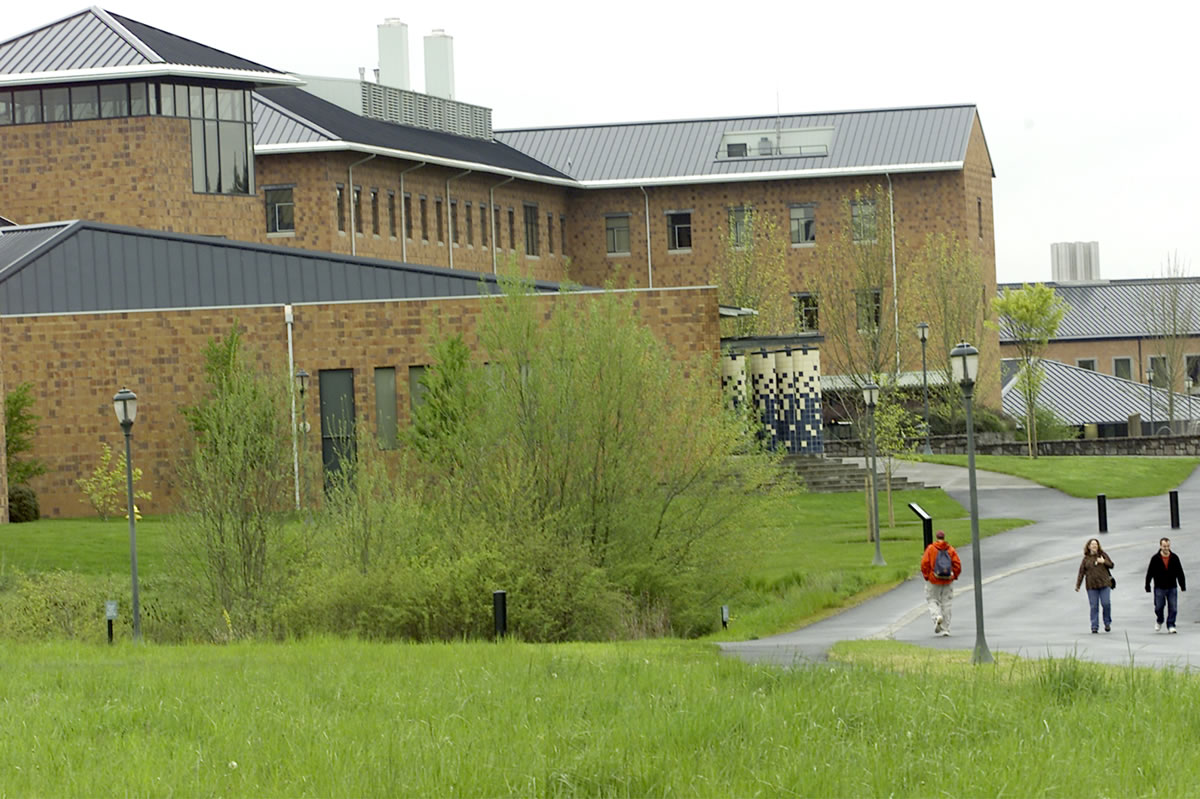OLYMPIA — In three weeks, thousands of students will start the fall semester at one of Washington State University’s campuses.
But with projections of $20,000 in-state tuition for the state’s top universities by the decade’s end, more students are turning to community colleges and branch campuses.
Nancy Youlden, vice chancellor of student affairs for WSU Vancouver, said schools like WSUV allow students to save money by living with family members (instead of staying in a pricey residence hall, fraternity or sorority) while earning a degree.
WSU Pullman
Tuition $11,386
Books $936
Fees $914
Housing/Dining $10,890
Total $24,126
WSU Vancouver
Tuition $11,386
Books $936
Total $12,322
Difference $11,804
This upcoming academic year, WSU undergraduate tuition for Washington residents sits at $11,386. This is a nearly 50 percent increase from rates in 2009, when tuition cost $7,600.
But this isn’t stopping students from attending — enrollment at the main WSU campus in Pullman has grown 9.5 percent in the past five years. However, head count at local colleges has grown far faster. In the same amount of time, Clark College enrollment has increased by 27.5 percent, and WSU Vancouver educates 23 percent more students.
Tuition at Clark College is less than half of WSU’s, but WSU Vancouver attendees pay the same in tuition as those at the main campus. However, WSUV students say the urban campus provides them with fewer extra fees, increased options to live with family members, and more employment opportunities.
According to the spring 2009 National Survey of Student Engagement, 78 percent of WSUV students worked either part or full time while going to school. The sample for this survey included freshmen and seniors.
But employment opportunities in Vancouver — which is more than five times the size of Pullman — are not the only thing bringing students to WSUV.
Youlden said the school’s growing number of high-quality programs attract many students. And the offerings keep expanding: This year, WSUV will add a new bachelor’s degree in neuroscience and a doctorate degree in nursing practice, she said.
“They still can get a quality piece of WSU by coming here,” Youlden said.
And though the academic opportunities and the number of attendees are increasing, the school still retains a small-campus feel, she said.
This feeling of community was a big draw for Shyanna Reyes. A few years ago, Reyes was on the fence. She was attending high school in Port Angeles, and couldn’t decide whether she wanted to attend WSU in Pullman or Vancouver.
Her uncle helped her decide. He earned his master’s degree at WSU Vancouver, and offered to let Reyes live with him and his wife while she attended the Vancouver campus. Reyes couldn’t turn down the offer, which was a cheaper and more comfortable option.
Now Reyes is hoping to graduate early with a degree in business administration. When she’s not studying, Reyes is busy as a student ambassador. She gives tours and talks to prospective students and their parents, hoping they’ll catch the bug for the Vancouver school.
She said she doesn’t regret her decision to attend the smaller satellite campus, and even if money weren’t an issue, she’d likely choose Vancouver again.
“Being from a small town, I was a little overwhelmed at the size of (WSU) Pullman, so (WSU) Vancouver was the perfect fit for me,” she said.
Josh Wright took the long route to WSU Vancouver. After graduating from Kelso High School in 2008, Wright chose to attend the Denver campus of Johnson & Wales University, a small private school. During his two years there, which were funded by student loans and academic scholarships, he played baseball and worked toward an international business degree.
But then the scholarships ran out, and Wright could no longer afford tuition at Johnson & Wales (it is now $26,112 for undergraduates). So he moved back to Cowlitz County and enrolled at Lower Columbia College right away — even though the school didn’t offer the courses he needed — so he wouldn’t have to start paying back the student loans he had accumulated in Colorado.
While attending LCC, Wright began working at J.C. Penney in Kelso. However, he knew he needed to transfer to a school that offered four-year degrees. He wanted to go to WSU in Pullman, but ended up enrolling at the Vancouver campus. This way, he could work at Penney’s while earning his degree.
Wright said he’s thankful he chose Vancouver.
“It’s tough going into a situation (like Pullman) where you don’t know if you’ll be able to get a job or not, and I didn’t want to take out more student loans,” he said.
The Vancouver campus is not what he expected. He said he likes the small-community vibe, and the professors are invested in students’ learning.
And Wright himself is invested in the school — he was recently named director of legislative affairs for the campus’s student government. He works with students from all WSU campuses to inform students of legislation that could affect higher education.
And while he still might transfer to the Pullman campus for his last semester, Wright says he wishes he would have started at WSU Vancouver “100 percent.”
Anna Marum: 360-754-5427. Twitter: col_olympia.



